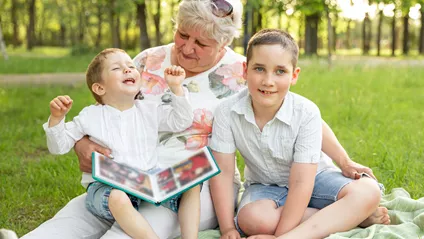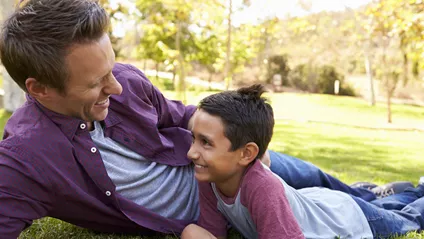Some children need a foster home for just a night or two, while others may be with their foster parents for months or even years.
This means there is a choice of ways to foster, so you’re able to find something that suits your skills, personality and family dynamic best. That way, you get more out of the experience, which means the children will too.
And as your fostering career develops, you may choose to attend additional training so you’re able to specialise in a certain type of fostering.
Different types of fostering

Emergency fostering
Sometimes, children come into foster care at very short notice – for example, if there’s domestic abuse at home. With these fostering placements, there’s very little warning and the child or young person will be with you for a very short time – perhaps even just one night.

Short-term fostering
Short-term care can be anything from a night or two, a couple of weeks, or even a few years. In many cases, this will be just as long as it takes to get the child back safely together with their birth family or moved into a long-term foster placement, but there are other reasons too.

Long-term fostering
Long-term foster placements provide children and young people with a stable, loving family home environment with a dedicated foster parent for at least 2 years, and often until the young person turns eighteen.

Parent & child fostering
Foster parents provide a home to a young expectant mum or a vulnerable parent and their young child – not just to keep them safe, but to help them develop their parenting skills – and typically last around 12 weeks.

Respite fostering
We offer our foster parents up to 22 nights of respite per year, where other carers look after the child in their care for a night or two – or even longer – generally at weekends or during school holidays.

Fostering siblings
We regularly need foster parents for siblings so we can help keep brothers and sisters together. As well as easing anxiety and stress, being together also improves their sense of identity and emotional wellbeing.

Teenagers
Sadly, there are many teenagers in foster care who need the unconditional love and support of a foster parent, who can offer stability, guidance and support throughout this crucial stage of their life.

Children with disabilities
Fostering a child with a disability can be challenging but it’s also incredibly rewarding, and we provide specialist training and support to ensure you have all the skills you need to help a child thrive.

Asylum-seeking child
When an asylum-seeking child arrives in the UK without a parent or guardian, the local authority becomes legally responsible for their health, safety and wellbeing, and will find them a suitable foster family.
Speak to our team
Whether you’re ready to start your journey or just want to chat to an expert, we’re here to talk.
Enquiry
Please make sure you read our terms and conditions because you’re agreeing to them by submitting an enquiry. It’s also worth reading our privacy policy and cookies policy so you understand how we collect and use your personal data. This site is protected by reCAPTCHA and the Google privacy policy and Terms of Service apply.
Ready to start your fostering journey?
By Phone
One of our team is available to talk to you over the phone to answer any of your fostering queries.
By Email
You can get in touch by filling out our online enquiry form with any queries that you may have.
Visit an office
We have local teams covering most of England. Find your local office today.
